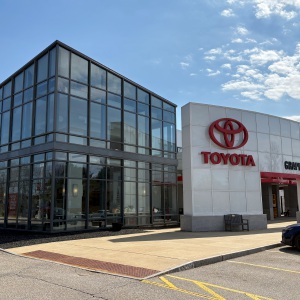Study says New Hampshire’s ‘civic health’ is declining as we get more isolated and suspicious

GEOFF FORESTER
|
Published: 10-10-2024 8:46 AM
Modified: 10-10-2024 4:49 PM |
A just-released look at the attitudes of people in New Hampshire tells a sobering story: In recent years Granite Staters have been feeling more isolated and less connected to their town or city, have become more suspicious of government and are helping their neighbors less.
“As a state and a nation, we have experienced a number of events including the COVID-19 pandemic, a rise in social justice efforts, the 2020 presidential election and the January 6 attack on the United States Capitol,” said QuixadaMoore-Vissing, a faculty fellow for the UNH Carsey School of Public Policy and lead author of the 2024 New Hampshire Civic Health Report. “These are all contributing factors that have affected how Granite Staters engage in civic life, and with each other.”
The report, a collaboration between Carsey School and the UNH Survey Center, focuses on the civic health of New Hampshire from 2019 through 2024. It used data from U.S. Census Bureau’s Current Population Survey, specifically the Volunteering and Civic Engagement Supplement and the Voting and Registration Supplement, and UNH’s Granite State Poll conducted in 2023 and 2024.
This is the third such survey of the state’s civic attitudes, following reports in 2012 and 2024. Among key findings:
■New Hampshire residents feel that they matter less to their communities than before the pandemic and are engaging less with others. Mattering to others has fallen sharply since 2019, from 76 percent to 43 percent.
■Only half of New Hampshire residents feel they belong in their local community (49 percent), and only a slight majority feel comfortable expressing their opinions (59 percent) or are satisfied with their relationships with others in their community (55 percent).
■The percentage of New Hampshire residents who said they did favors for their neighbors fell by half, from 11 percent in 2019 to 5 percent in 2021. Just one-fifth (21 percent) reported working with neighbors to do something good for the community, a decline from 27 percent in 2019.
■Belief that national government will do the right thing most of the time has fallen from 31% in 2001 to just 17% in 2023. Similar belief for local government has fallen from 53% to 36%.
Article continues after...
Yesterday's Most Read Articles
 New Hampshire State Police join ICE task force
New Hampshire State Police join ICE task force
 ‘It’s always there’: 50 years after Vietnam War’s end, a Concord veteran recalls his work to honor those who fought
‘It’s always there’: 50 years after Vietnam War’s end, a Concord veteran recalls his work to honor those who fought
 Facing 30% budget cut, university leaders say raising tuition is not an option
Facing 30% budget cut, university leaders say raising tuition is not an option
 25-year-old man shot by police in Keene, AG investigating
25-year-old man shot by police in Keene, AG investigating
 Two of five Grappone auto franchises to be sold as part of family transition
Two of five Grappone auto franchises to be sold as part of family transition
 ‘Anger and backlash’ – Allenstown residents frustrated over elimination trash services
‘Anger and backlash’ – Allenstown residents frustrated over elimination trash services
■While half of New Hampshire residents say they engage with people of other races ethnicities or cultures, people ages 65 and older do so at a significantly lower rate than all other age groups.
The study can be seen at scholars.unh.edu/cgi/viewcontent.cgi?article=1493&context=carsey







 Outside, please: Concord outdoor dining begins for the season
Outside, please: Concord outdoor dining begins for the season ‘A full board’: After frustration, Chichester appoints a third selectman
‘A full board’: After frustration, Chichester appoints a third selectman Patriot Piecemakers craft quilts to honor veterans
Patriot Piecemakers craft quilts to honor veterans From raising chickens to programming a VR game, Merrimack Valley High School students show off their senior projects
From raising chickens to programming a VR game, Merrimack Valley High School students show off their senior projects
